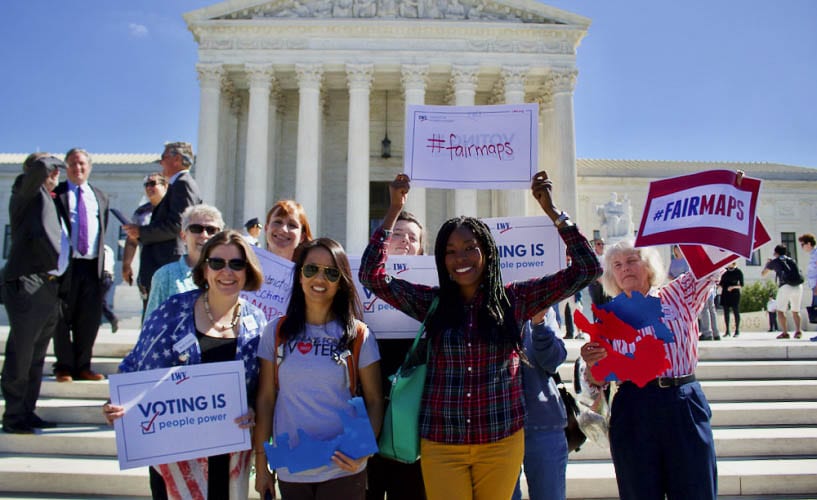Partnership with FVRL and the state allow for virtual workshops on getting involved
CLARK COUNTY — The League of Women Voters of Clark County (LWV) in partnership with the Fort Vancouver Regional Libraries (FVRL) will kick off a series of classes on redistricting on Feb. 16.

The free, 90-minute online workshop will feature information about how the redistricting effort, which is scheduled to begin this spring, will impact residents, and how members of the public can participate in the process.
“Only 800-900 people testified during the last cycle,” said Judy Zeider, the civics education chair with LWV. “This time, the goal is to have 2,000 people testify, and also have them really focused on the criteria and the issues the commissioners are going to be looking at.”

The workshop will begin at 6:30 p.m. and will be hosted on the FVRL online platform. You can register at this link here.
Redistricting is the process of drawing electoral district boundaries which occurs once every 10 years on the heels of the completion of the U.S. Census. In states where there is more than one congressional representative, the census tallies are used to reconfigure district lines. Washington is among the states that takes public testimony as part of the process.
Issues like gerrymandering, in which legislators create somewhat absurd district lines to better suit their political party or base, will also be explained so as to educate class-goers on how to recognize such districting. The workshops will make use of the readily available online mapping tool known as Dave’s Redistricting to visually explain the process as well.
“Wherever you are on the political spectrum, I think we all want the candidates we like and support to have a fair chance at winning an election,” Zeider said. “If they’re good at putting out their points and can convince voters, we don’t want our districts so lopsided one way or another, that you really don’t get good people throwing their hat in the ring.”
In March, the League of Women Voters of Washington will hold two sessions to provide training to members of the public who want to testify before the state redistricting commission. Details about the training offered at the two-session Speak-up School meeting on March 6 and 20 will be available at the Feb. 16 workshop.
Among the considerations for residents pertaining to redistricting are whether lines are drawn to encourage electoral competition; whether districts are compact, contiguous and convenient for the public; whether they allow for fair and effective representation; and whether they prohibit undue favoritism for parties or groups.
“The goal of the Speak-up Schools is not to tell people what to say, because different people are going to come at this from different perspectives,” Zeider said. “They will fine tune their public speaking skills, and educate them on what criteria the commission is going to be looking at, so that they can give effective public testimony. This would be good training for anyone who wants to testify to a board or commission or a city or county council.”
According to Washington state law, commissioners are to draw district lines in a manner that maintains equal population, ensures districts are compact, contiguous, and convenient, minimize splitting political boundaries like county and city lines, encourages electoral competition, preserves communities of interest, prohibits undue favoritism for parties or groups, and provides fair and effective representation.
Some questions that will be covered for class-goers include: Will your Congressional representative be from near your community? Will your state senator or state representative be close enough to where you live so you don’t need to travel for hours to meet with them?
“The technical part about drawing district lines is something you need to learn about and play with and practice,” Zeider said. “But we all have our experiences when it comes to our voting districts now, and people can bring those to the table. I think that’s very important for the commission to hear from people who maybe have had positive experiences with the way the districts are now, or maybe negative experiences. We all have a voice.”
The League of Women Voters of Clark County is a nonpartisan, grassroots civic organization that encourages informed and active participation in government, works to increase understanding of major public policy issues, and influences public policy through education and advocacy. Membership in the League is open to all. With 100 years of experience, the League is one of America’s oldest and most trusted civic nonprofit organizations.
Information provided by the League of Women Voters of Clark County




